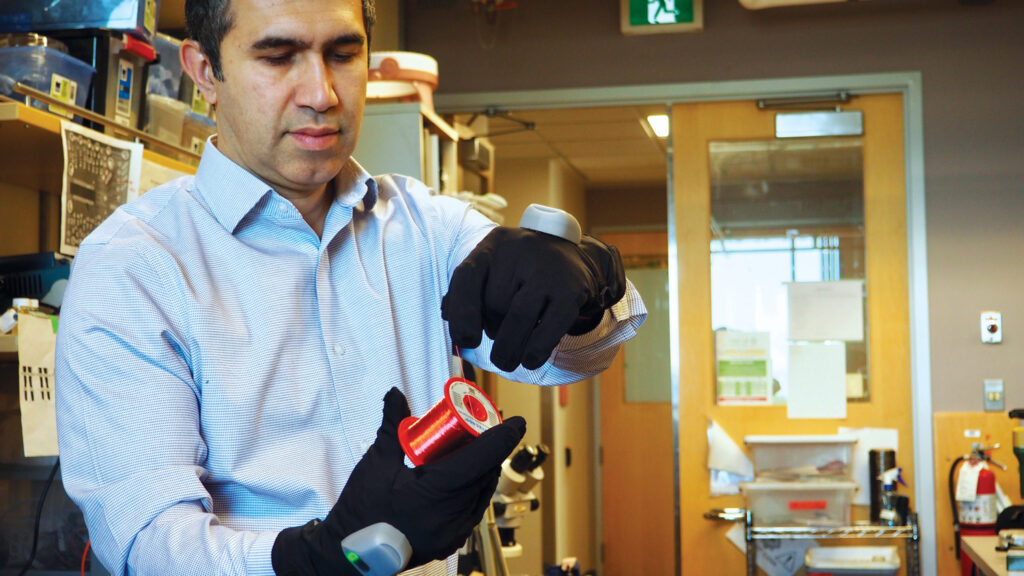The picture immediately tells me they KNOW NOTHING about stroke recovery of hands. No survivor with spasticity could ever get this glove on. Measuring movement DOES NOTHING to get survivors recovered! They need EXACT rehab protocols. Useless.
Smart gloves help researchers study strokes
Swatches | June 1, 2024 | By: ATA

A smart glove undergoing testing with stroke survivors could also one day have applications in robotics, sign language translation, animation and augmented reality. University of British Columbia (UBC) researchers developed the MarsWear smart glove that tracks hand and finger movement and grasping force in real time using sensor yarns and pressure sensors woven into the fabric. No motion-capture cameras are needed, just the researchers’ machine learning models to determine angles of motion.
“We can then analyze and fine-tune [patients’] exercise programs for the best possible results, even remotely,” says Janice Eng, Ph.D., a stroke rehabilitation specialist and professor of medicine at UBC.
“Imagine being able to accurately capture hand movements and interactions with objects and have it automatically display on a screen,” says Peyman Servati, Ph.D., a UBC professor of electrical and computer engineering. “You can type text without needing a physical keyboard, control a robot or translate American Sign Language into written speech in real time, providing easier communication for individuals who are deaf or hard of hearing.”
Work on the smart glove was published in January 2024 in Nature Machine Intelligence. The gloves are manufactured locally and the product was created for the stroke project
by startup Texavie, managed by the UBC researchers.
No comments:
Post a Comment